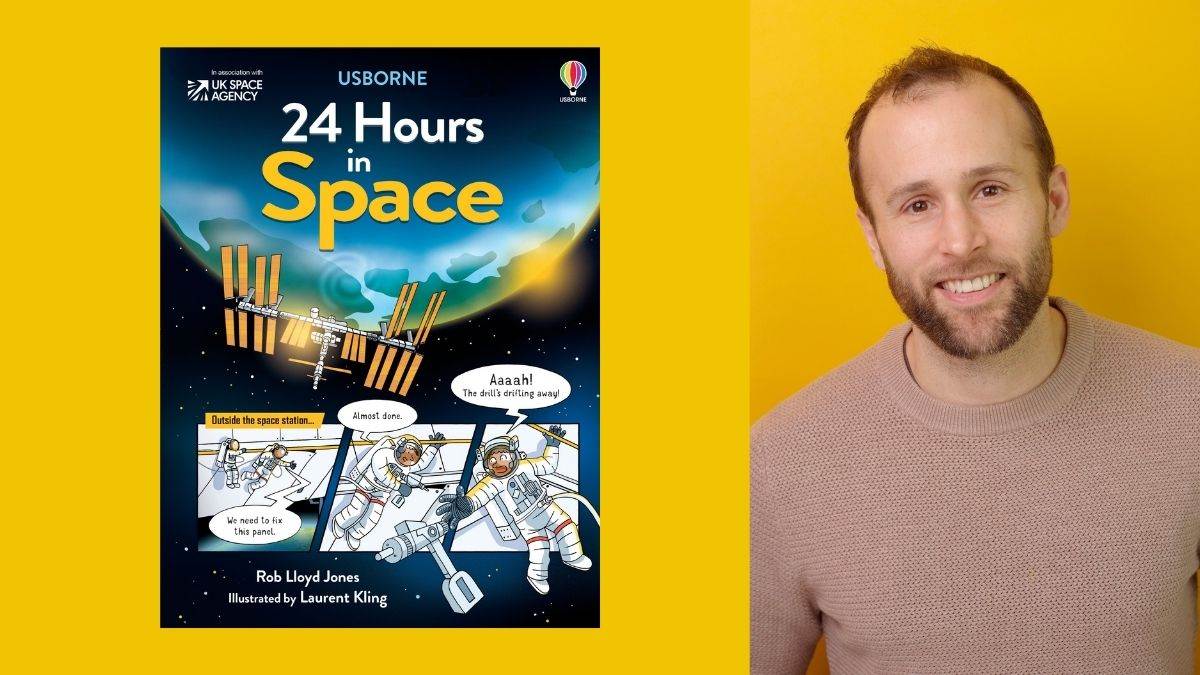What would it really be like to spend 24 hours in space?
Published on: 27 April 2022
Author Rob Lloyd Jones shares the inspiration behind his new book 24 Hours in Space

Movie stars and Mission Control
I think I was the only child in my class at school who didn’t want to be an astronaut when I grew up. That was the era of the space shuttle, those live TV broadcasts of astronauts in those baggy orange suits, striding to the launch pad while waving to cheering crowds. They looked like movie stars. I totally get why my classmates wanted that job. The reason I didn’t can be summed up in two words: Mission Control.
I’d seen a documentary about spaceflight and shuttle launches, which showed how the flight controllers at Mission Control were the people really in charge of spaceflight. They planned the missions, operated the spacecraft, and solved every problem. It seemed to me that the astronauts were just passengers, sitting back to enjoy the ride. Mission Control was the heart of it all.
I was the same in theatres. I never wanted to be on stage. I wanted to be BACK stage, where the magic really happened.
What do astronauts do all day?
Well, I never became an astronaut or a mission controller. But I did continue to wonder what astronauts actually do, aside from striding to the launch pad and waving to the crowd. My belief was that they didn’t really do very much.
That was still my belief as I began my research for 24 Hours in Space. The question the book wanted to answer was this: What do astronauts do all day in space? The answer, I feared, was, ‘Not very much.’ How could we even fill out the pages? I suppose we could show how they get to the International Space Station, and why they float around when they’re there. Oh, and a space toilet! Hopefully that could take up a few pages. Otherwise, don’t the crew just spend their time just staring at Earth?
I am glad to tell you that I was wrong.
Very wrong.
So many science experiments!
A space station makes a great laboratory because scientists can study materials or living things without them being as affected by gravity as they would be on Earth. Right now, there are at least 300 experiments being carried out on the ISS - biology, chemistry and physics – and over 3,000 have been conducted there in total.
I was stunned by how much those experiments in space have helped our lives on Earth. Thanks to the hard work of astronauts, we have more advanced brain and eye surgery, stronger artificial limbs, more efficient water recycling systems, better scanners in hospitals… and so much more. Their work has even stopped sweaty clothes smelling bad. Other experiments have helped develop new technology for future space missions, so we can travel deeper into the Solar System. Astronauts also take hundreds of photos of Earth from the ISS, from which scientists learn how environments, such as rainforests or glaciers, are changing over time. The astronauts even experiment on themselves – taking blood samples, for instance, to study how living in space affects their bodies.
That’s not even mentioning all the maintenance work they do around the space station – testing things, tidying things, storing things, and going on space walks (or, in astronaut language, ‘extra vehicular activities’) to fix things on the outside of the station. On top of that, each astronaut spends at least two hours a day exercising, to stop their bodies from getting weak in the lower gravity environment.
Two hours of exercise, plus all the house chores, and all the science work – every day?! So, I guess, maybe astronauts do actually have a lot to do?
In fact, I began to wonder, how were we going to fit all of that into one book? Luckily, I was working with Usborne’s brilliant designers, an excellent editor, and the amazing illustrator Laurent Kling. While I bombarded them all with information, all of which was checked by our expert at the UK Space Agency, they turned it into a book that is both fun and funny and jam-packed with fascinating information about life on board a space station.
Oh, and we still show Mission Control and all the amazing work they do, too. And I still imagine myself there among them, only now that’s because being an astronaut sounds like, well, a bit too much work.

